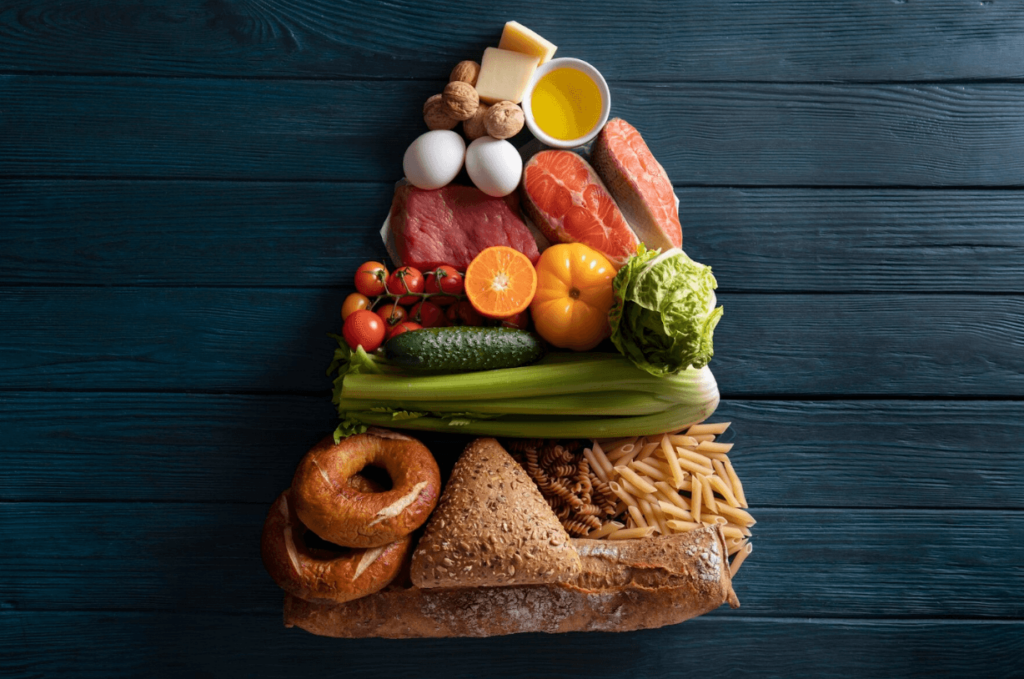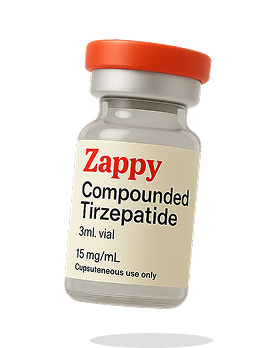Introduction
Are you in search of a weight loss diet plan for men? Then you are at the right place. A lot of people use various dietary approaches to achieve their weight loss goals. Oftentimes, they do succeed in losing the weight they wanted but come down with other complications because the dietary plans they used were not healthy. You do not want to develop nutritional deficiencies, hormonal imbalances, hair loss, heart diseases, diabetes, and some other chronic ailments during the process of losing weight. That is why we are putting up this article to discuss the options available in your quest for the best weight loss diet for men.
What Makes a Successful Diet Plan for Men?
A successful diet plan for men is any diet plan that provides men with all the essential nutrients needed for optimal systemic functions by taking into consideration an individual’s dietary needs and level of activity. Such a diet must be consistent, sustainable, and combined with adequate levels of physical activity. A successful diet plan for men should contain the following;
- Adequate vegetables and fruits for antioxidants, minerals, and vitamins
- Enough hydration
- Healthy fats for hormonal regulation
- Sufficient fiber to promote gut health and satiety
- Protein to help build and repair muscles
- Adjusted caloric consumption based on levels of activity
Men have special needs such as adequate testosterone levels and muscle mass. To boost your testosterone levels as a man, you need diets rich in nutrients like healthy fats, vitamin D, and Zinc. Men also require more protein intake to help build muscles and achieve that masculine build or shape.
-
Why Fad Diets Often Fail
Some people use this as a weight loss diet for men. Fad diets are weight loss diets that do not have evidence-based facts. They may restrict you from taking a particular nutrient or class of food because of their rigid rules. Fad diets make unrealistic claims of quick weight loss. However, such outcomes may be difficult to reproduce. Examples of diet plans that fall into this group are Fruitarianism, Grapefruit diet, Cabbage soup diet, Keto diet, Whole30, Zone diet, Gluten-free diet, Atkins diet, Master cleanse, and Paleo diet.
Fad diets often fail because it is difficult to maintain them in the long term. They come with several health risks including loss of muscle mass, weakness, fatigue, heart disease, poor mental health, eating disorders, and digestive issues. Weight loss is a long-term process, but fad diets focus on short-term goals alone. Fad diets are bound to fail because they are unsustainable and unrealistic.
-
The Importance of Balanced Nutrition
When you eat a balanced diet, you are sure to get all the essential classes of food, energy, vitamins, and minerals necessary for optimal health. The nutritional content of balanced diets also comes in the right proportion. At Zappy Health, we recommend that you
- Drink an adequate amount of water (at least 3 to 4 liters daily).
- Use small amounts of unsaturated oils.
- Daily, take about 5 portions of different vegetables and fruits.
- Consume protein-rich meals like meat, milk, legumes, eggs, and fish.
- Base your meals on starchy and high-fiber meals.
People have the misconception that being consistent on a balanced diet will make them gain weight. The truth is that a balanced helps you achieve weight loss especially when done right. Aim for caloric deficits by combining it with more physical activity. Doing this is sustainable in the long term. It also supports optimal health.
-
Tailoring Diet Plans to Individual Needs
Different people have varying dietary needs depending on their goals and health status. At Zappy Health, we take this into consideration and personalize your diets based on your needs. You do not have to avoid your favorite meals because you want to lose weight. Doing so may not be sustainable. If your favorite meal has nutritional values and high calories, you can introduce portion control and other activities that will help you burn calories acquired from such meals and aim for caloric deficits.
Dietary plan vary based on gender, age, activity levels, and health status. It is essential to go for a plan that will be suitable for a man of your age, activity level and state of health. An expert will assess your health status and make the neccessary recommendations.

Top Diet Plans for Men: Pros and Cons
Below are some men’s weight loss food plans:
-
Mediterranean Diet
As the name implies, Mediterranean diets are diets that are based on food items available in the Mediterranean region. They contain whole grains, spices and herbs, fruits and vegetables, healthy fats and oils, seeds and nuts, seafood and fish, legumes and beans. They do not contain gravies, gravies, or sweets.
The Mediterranean diet will help to lower your sugar levels, prevent type 2 diabetes, prevent obesity, achieve weight loss, boost your memory, prevent depression, promote healthy cholesterol levels, improve your gut health, prevent high blood pressure and heart diseases, and enhance longevity. The Mediterranean diet plan may be expensive for some people and may take more time while shopping for food items. It is not suitable for people with digestive issues such as lactose intolerance and celiac disease. Since the Mediteranean diet permits moderate alcohol, it may not be suitable for people with a history of addiction, pregnancy, and other conditions that are contraindications of alcohol consumption. The Medittarenean diet is low in vitamin D, calcium, and iron. As such, it will require supplementation. If you are unable to control your portions and complement them by incorporating adequate physical activity, you may gain weight from it. Ensure you consult an expert before commencing this diet plan.
-
Plant-Based Whole Foods Diet
This diet emphasizes abstaining from or limiting food items that come from animals. However, it emphasizes taking meal items that are minimally processed from plants (nuts, legumes, vegetables, fruits, and whole grains). Plant-based whole food diets are not highly processed or refined and do not include processed oils, white flour, or sugar.
This dietary plan helps to boost your immune system, reduce unhealthy cholesterols, neutralize toxins, control blood sugar, reduce belly fat, lower your blood pressure, and decrease inflammatory processes. Plant-based whole-food diets lack vitamins and minerals found in red meat. Their preparation and planning are tedious and will consume time. Plant-based whole-food diets do not contain enough amino acids, proteins, omega-3 fatty acids, calcium, iron, and vitamin B12. Because of that, they may be risky to your health.
-
Low-Carb and Keto Diet

Low-carb diets are diets that have lesser amounts of carbohydrates (about 50 grams to 150 grams daily). However, Keto diets are diets with extremely low carbohydrate levels (below 50 grams daily) that will tilt the body into burning fat to get glucose (a process known as ketosis). Low-carb diets encourage higher protein consumption but keto diets involve having moderate consumption of protein and very high calories from fat.These diets help to control sugar levels (especially for those with type 2 diabetes), lose weight significantly, regulate cholesterol levels, reduce inflammation, stabilize energy, and reduce appetite. However, low-carb and keto diets are unsustainable, deficient in essential vitamins, minerals, and nutrients, cause gastrointestinal disturbances, lead to hair loss, and may cause hormonal imbalance. See an expert before you consider this diet plan because it is not suitable for everyone.
-
Intermittent Fasting
This plan entails the process of alternating between periods of eating and fasting. The fasting periods could be within the day, week, or alternate days. It could be restricting your eating time to a particular window daily (for example every 8 hours). Another method will be the 5:2 fasting. Here you have your normal meals for 5 days of the week and limit your caloric consumption to between 500 and 600 for the remaining 2 days. Alternate-day fasting is another method here. You can have normal meals for one day, fast the next day, and so on.
Intermittent fasting helps to boost your immune system, manage weight, reduce inflammation, control blood sugar and blood pressure, prevent type 2 diabetes, improve concentration, and enhance gut health. Although this method is safe, it can be detrimental to people living with diabetes, pregnant women, breastfeeding mothers, taking certain medications, adolescents, and children. Some studies have reported gallstones to be associated with this dietary plan. Also, this method seems unsustainable in the long run because you may find it difficult to plan social events around your fasting periods. It may cause moodiness, sleep disturbances, fatigue, digestive issues, hunger, low blood sugar, and headaches.
-
The Paleo Diet

In the search for mens weight loss food plan, some people choose the Paleo diet. This diet is similar to what prehistoric hunter-gatherers were having. It involves fresh and dried herbs, healthy oils (from walnuts, coconut, olive, flaxseed, and avocado), vegetables, low-sugar fruits, nuts, seeds, eggs, fish, and meat. It does not include beer, pasta, bread, rice, crackers, processed items, added salt, refined sugar, dairy, legumes, cereals, and grains.The paleo diet helps to reduce the risk of high blood pressure, high cholesterol, and excessive intake of calories. It is useful for managing cravings and achieving weight loss. However, this diet is unsustainable because it is difficult to stick to and may be expensive for some people. Preparing a paleo diet may consume time. The diet may constitute a health risk because it is deficient in protein, carbs, fiber, and calcium. Also, it has high saturated fat from animals (a risk for heart diseases).
-
The MIND Diet
This diet incorporates some aspects of the Mediterranean and DASH diets to achieve weight loss and boost mental health. The emphasis here is on plant-based meals such as nuts, vegetables, beans, berries, olive oil, and whole grains. It may include fish and poultry products. The MIND diet does not allow fried meals, refined grains, processed meats, butter, margarine, dessert-type meals, red meat, and full-fat cheese.
The MIND Diet helps to achieve weight loss, boost memory, and prevent chronic ailments such as Alzheimer’s disease, diabetes, high blood pressure, and some cancers. This diet may be expensive for some people and time-consuming because it requires careful preparation and planning. It does not provide guidance on portion control. The MIND diet is not flexible and is deficient in essential nutrients including iron. As such, this diet plan may be unsustainable for some men.
Key Features of Effective Diet Plans
For a diet plan to be effective, it should incorporate the following:
- Long-Term Sustainability: You should be able to stick to it for a long time without feeling overwhelmed, deprived, or starved.
- Emphasis on Nutrient Density: It should prioritize meals that are rich in nutrients and low in calories. It should not prevent you from having adequate nutrients from some meals.
- Flexibility and Customization: Your favorite meals should be included and the plan should be flexible enough to adapt to your lifestyle. That way, you can adhere to it.
Lifestyle Habits to Complement Your Diet

At Zappy Health, we recommend lifestyle modifications to complement your diet plan. Stay active by performing regular physical activities. Doing so will help you achieve caloric deficits even when you eat a balanced diet. Drink enough water to get adequate hydration which helps in nutrient transport, satiety, regulating the body’s temperature, and other systemic functions.
Proper rest and enough sleep help people to achieve weight loss. This is contrary to the misconception that sleep makes you gain weight. When you combine regular physical activity and rest, your resting metabolic rate increases, leading to weight loss.
Stress is a major cause of weight gain. We advise that you avoid excessive and unnecessary stress. Identify and remove stressors, if possible, or get help from experts. Engage in activities that will relieve your stress.
Doing all these will not only make you lose weight, it will assist you in preventing chronic ailments and promoting overall well-being.
The Takeaway: Choosing the Right Plan for You
What is the best weight loss diet for men? As a man planning for weight loss, you need to have both short-term and long-term health goals. Consider your lifestyle preferences when choosing a weight-loss diet plan. Don’t walk the journey alone, seek help from experts (including nutritionists and doctors) who will guide you throughout the process. They will help you tailor a diet plan for your specific needs.
Frequently Asked Questions
-
What is the 30/30/30 rule for Weight Loss?
This is an interesting rule or weight loss strategy that encourages men to consume 30 grams of protein within 30 minutes of waking up, followed by 30 minutes of low-intensity exercise. Some people claim that this strategy helps to preserve muscles, control blood sugar, and burn fat. Only anecdotal evidence exists to support these claims and significant scientific research is limited in this aspect.
-
What is the Fastest Way For A Man to Lose Weight?
Although we do not encourage drastic weight loss approaches because of the health risks, you may consider setting SMART weight loss goals, having adequate exercise every day, drinking enough water, aiming for caloric deficits, getting enough sleep/rest, and consulting experts to create your personalized weight loss diet plan for men.













